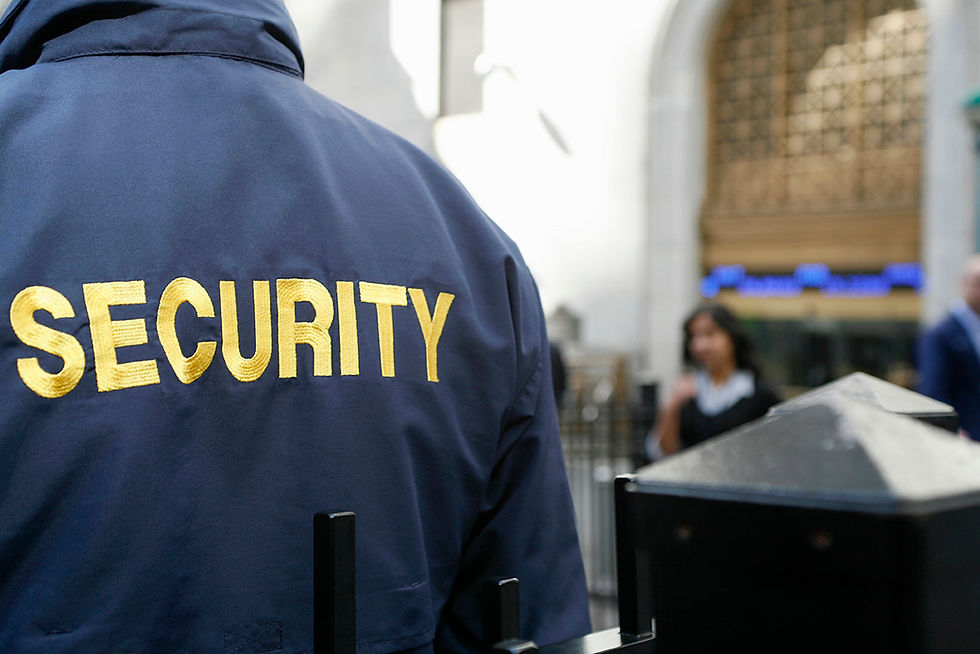Scott London Rationalizes Insider Trading prior to going to Prison
- Steven Mintz
- Jul 1, 2014
- 4 min read
Ethical Blindness Motivates Egregious Behavior
Scott London, a former partner of KPMG, was convicted of insider training last month and sentenced to five months in prison, a laughable sentence in light of his trading on inside information about KPMG clients while auditing their books. On June 27, 2014, just prior to going to prison, London participated in a webcast on accounting ethics. During the interview he provided insight into the motivations for his actions. The key points are as follows.
London believes he would not have engaged in his illegal insider trading scheme had he paused to think about the impact getting caught would have on "the innocent – the unintended victims like family and friends." He says that "if I had any idea of the magnitude of impact of crossing that line between right and wrong, for family and clients, I don't know how I would have done it."
London says that his participation in the scheme was not the result of things happening so fast that he got caught up in it, but rather that they developed so slowly. His friend and fellow defendant in the case, Bryan Shaw,started off asking him for public information, and then gradually started asking for non-public information.
London believes that "burnout" in his job at KPMG contributed significantly to his poor judgment. He says he had been asking to get out of that position for three years and "being in the same position for so long, working extensive hours" took a toll on him to the point that he didn't value his job as much.

Basically, London is trying to justify his actions by rationalizing them and blaming others including KPMG. The most interesting statement is that he failed to see the consequences of his actions on others. He did not see right from wrong. In essence, he suffered from ethical blindness, a term that describes London’s actions because the events surrounding his decision to engage in insider training ‘crowded out’ any sense of right and wrong.
In an interview with Market Watch on insider trading, London said: “I believe that it’s rampant. Information gets leaked all the time. It’s obvious when you look at the trading activity and price fluctuations before and after press releases.” Well, I guess he should know.
In a previous blog I asked the question: What possesses an audit partner to trade on inside information and violate the accounting profession’s most sacred ethical standard of audit independence from one’s client? Greed is one motivating force and the failure to identify how his actions might affect others also influenced his decision.
I can’t blame London 100% for violating independence standards. KPMG must share some of the blame because audit firms must closely monitor partner activities to identify the red flags. KPMG paid the ultimate price when it resigned as the auditor of Skechers and Herbalife after learning that London provided non-public information about the companies to a third party, who then used the information in stock trades. The firm fired London.
In resigning the two audit accounts, KPMG said it was withdrawing its blessing on the financial statements of Herbalife for the past three years and of Skechers for the past two. KPMG stressed, however, that it had no reason to believe there were any errors in the companies’ books. I think the error in judgment by London counts as an error just as much as if the company purposefully misstated the financial results of the two companies.
In a statement that should raise red flags for all CPA firms that audit public companies, KPMG stated it had concluded it was not independent because of alleged insider trading. Independence is the foundation of the accounting profession and the cornerstone of an audit conducted in accordance with generally accepted auditing standards. The public (i.e., shareholders and creditors) relies on auditors’ independence, objectivity, and integrity to ensure that the audit has been conducted in accordance with such standards and that the financial statements are free of material misstatements.
The leaking of financial information about a company to anyone prior to its public release affects the level playing field that should exist with respect to personal and business contacts of the leaker and the general public. It violates the fairness doctrine in treating equals, equally, and it violates basic integrity standards. The KPMG scandal concerns me because a pattern of such improprieties may be developing in the accounting profession.
As for London, he probably will be ‘born again” in prison, or at least claim so after being released. He’ll write a book and speak out on ethics whenever he can. It’s all part of resurrecting his image. Heck, he’ll probably start his own fraud institute and try to ferret out fraud, and try to profit from that endeavor. Wait, didn’t Barry Minkow of ZZZZ Best fame do the very same thing?
Minkow received a 5-year sentence in April 2014 for defrauding a San Diego-area church in what the judge called a “despicable, inexcusable crime.” He admitted that he opened unauthorized accounts, forged signatures on checks and used member donations for personal benefit to steal $3 million from San Diego Community Bible Church.
Whether it’s insider trading or stealing funds, London and Minkow lost their moral compass somewhere along the line and took advantage of their position of trust, the very basis of ethical behavior in business and accounting.
Blog posted by Steven Mintz, aka Ethics Sage, on July 1, 2014. Dr. Mintz is a professor in the Orfalea College of Business at Cal Poly, San Luis Obispo. He also blogs at www.workplaceethicsadvice.com.







Comments